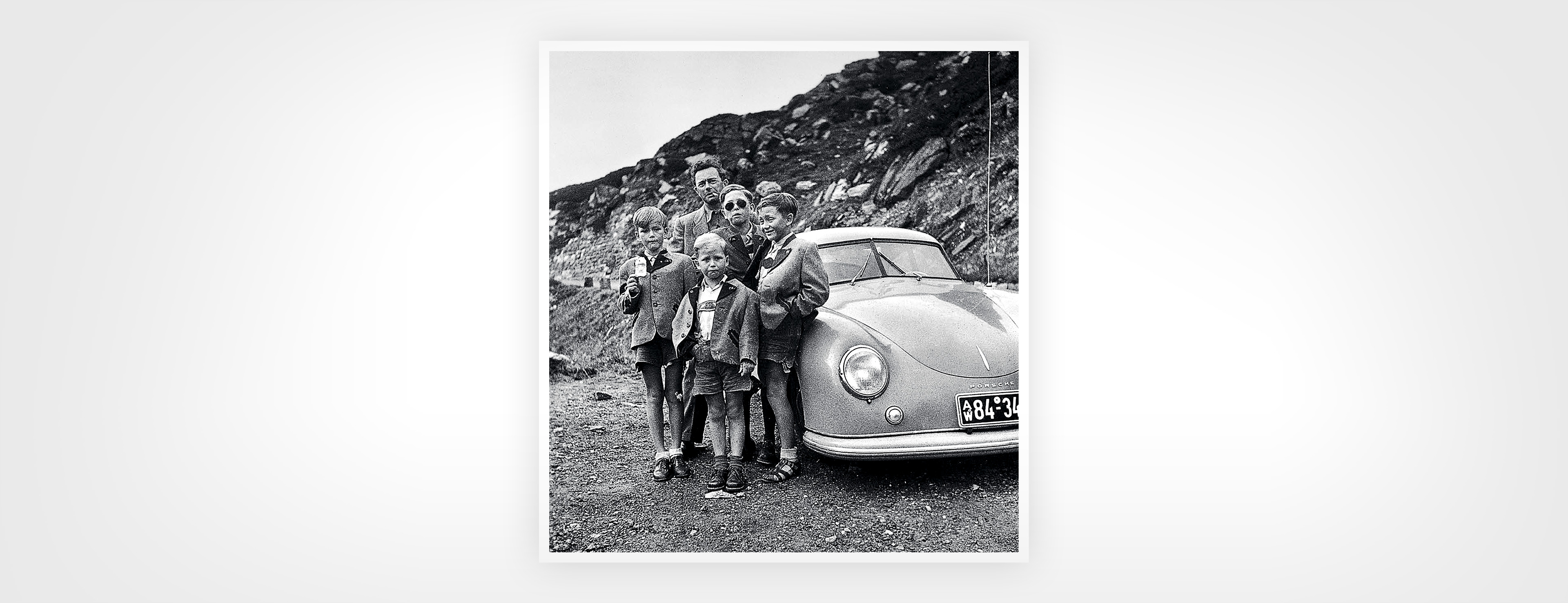In the early 1990s the company’s very existence was threatened. But the family remained loyal and found Wendelin Wiedeking to be an assertive reformer whose modernization measures based on Japanese techniques shocked many of his contemporaries in Zuffenhausen. No stone in the venerable factory was left unturned.
The model range was revolutionized in similar ways, including a shared-part strategy for 911 models and the mid-engine two-seater Boxster, and water cooling for all the engines. That was followed by an SUV with the segment’s hottest model name, and then a four-door Gran Turismo. The Executive Board developed a daring vision for the future, which met with the approval of Supervisory Board member Wolfgang Porsche.
Porsche’s last air-cooled engine was produced in Zuffenhausen in March of 1998. Ferry Porsche had taken over the simple air-cooled principle from Volkswagen and expanded it to 450 hp in the Porsche 911 Turbo S of 1998 before the curtains fell for environmental and noise-related reasons. Water cooling had now also come to Porsche’s flat engines—and many fans of the 911 were up in arms. But the new generation, which laid the foundation for the cars of today, has itself become a classic.
Ferry Porsche died in Zell am See on March 27, 1998. The company founder had created an automotive legend. He had also forged an exemplary corporate culture, a superb mixture of progress and passion no one wanted to change. When Wolfgang Porsche, the youngest member of the third generation, was selected to be the family’s spokesman, it was seen as a clear sign of consensus and a future-oriented approach.
Wolfgang Porsche, who has always been intimately involved with the company, has a strong sense of tradition and the significance of his family. So it was a logical step to acquire the Schüttgut estate from his relatives, which has again become a family retreat as well as a final resting place for earlier generations. Amidst the Großglockner, Kitzsteinhorn, and Schmittenhöhe mountain peaks, Wolfgang Porsche, joint owner and Supervisory Board member of the Volkswagen Group, maintains a balance between responsibility for the largest industrial company in Germany and his own passions. In what little leisure time he has, he paints still lifes in oil. He also hunts, occasionally even when the countryside is a meter deep in snow. And he collects cars, especially those of the Porsche brand. His personal fleet includes a Porsche tractor, but also an Austro-Daimler hill-climbing champion, the perfect entry in a concours d’elegance. The best part about Wolfgang Porsche’s collection is that he drives his treasures regularly and with nonchalance. As do his children. One thing is certain: Wolfgang Porsche’s sports cars will definitely not suffer damage from disuse.
Back to Wolfgang Porsche as a manager. The company’s continuing growth required some type of security in the industry. It therefore made sense to join forces with Volkswagen. Wolfgang Porsche keeps watch over developments as a member of various supervisory boards—with charm, consistency, and strictness when necessary. He travels so much, especially among the five sites of Salzburg, Zell am See, Wolfsburg, Ingolstadt, and Zuffenhausen, that he rarely spends more than three consecutive nights in one place.
The Porsche Group has started to invest billions in electromobility and digitalization. Wolfgang Porsche is integrating the next—now the fourth—generation of his family into the company and preparing the boys to meet the challenges of the future. He’s proud of his daughter, three sons, and four grandchildren. At home in Salzburg and in Zell am See, he works in his father’s office in Zuffenhausen, which has been preserved in its original form. He’s a supervisor in the truest sense of the word. A representative. And a passionate promoter. Wolfgang Porsche both honors tradition and pursues progress.
By Herbert Völker
Photos by Porsche

![[+]](https://files.porsche.com/filestore/image/multimedia/none/christophorus-issue386-article01-content-01/normal/36116874-3743-11e8-bbc5-0019999cd470/porsche-normal.jpg)
![[+]](https://files.porsche.com/filestore/image/multimedia/none/christophorus-issue386-article01-margin-01/normal/1af1c6ca-3743-11e8-bbc5-0019999cd470/porsche-normal.jpg)
![[+]](https://files.porsche.com/filestore/image/multimedia/none/christophorus-issue386-article01-margin-02/normal/2228f7da-3743-11e8-bbc5-0019999cd470/porsche-normal.jpg)